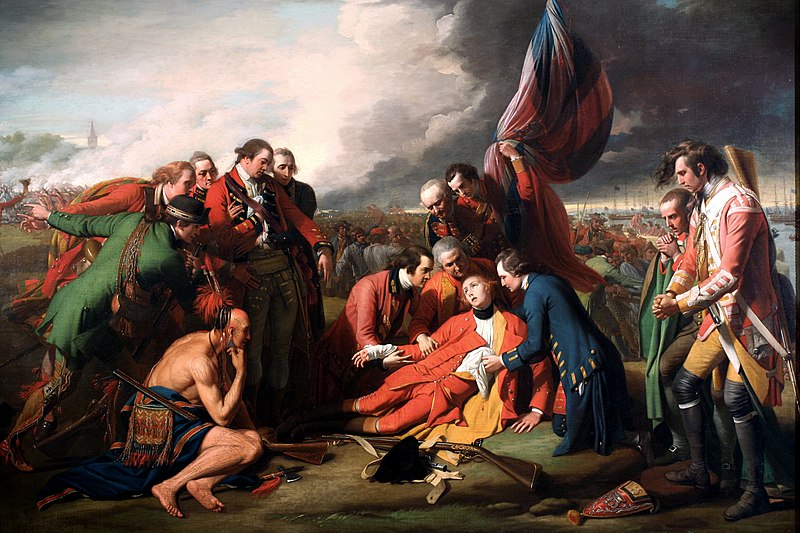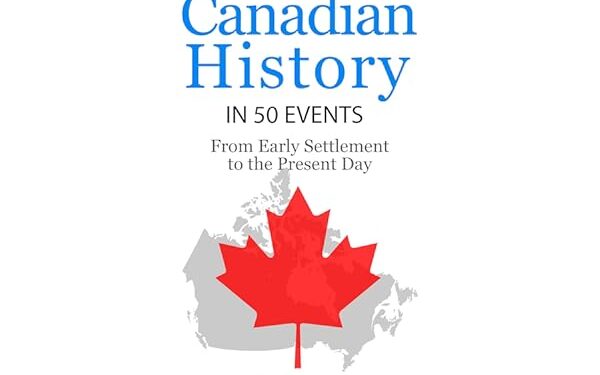What are the different stages of Canadian history from the First Settlers to the present age
The history of Canada is a rich and diverse tapestry that spans centuries, encompassing the experiences of Indigenous peoples, European exploration and colonization, the evolution of Canadian identity, and the country’s role on the world stage.
Indigenous Peoples and Early Settlement (Pre-16th Century – Late 15th Century):
Canada’s history predates European contact by thousands of years. Indigenous peoples, including First Nations, Inuit, and Métis, have inhabited the region for millennia. They developed rich and diverse cultures, with distinct languages, belief systems, and social structures. Indigenous communities were connected to the land and had intricate knowledge of their environments.
A turning point was reached with the entrance of European explorers in the late 15th century. It is thought that Italian explorer John Cabot, who was sailing under the English flag, made it to the Canadian shore in 1497. The French explorer Jacques Cartier came next in the early 16th century. These interactions paved the way for later contact and colonization.
European Colonization (16th Century – 18th Century):
European powers, primarily France and England, established colonies in Canada. New France, established by the French in the early 17th century, stretched from the St. Lawrence River to the Great Lakes. In contrast, the British established settlements in what is now the Maritimes and parts of Newfoundland.
The competition between the French and the British for control of Canada, culminating in the Seven Years’ War (1756-1763), saw the British emerge as the dominant colonial power. The Treaty of Paris in 1763 formally ceded New France to Britain, marking the beginning of British rule.
British North America (Late 18th Century – 19th Century):
After the American Revolution in the late 18th century, British Loyalists, who remained loyal to the British Crown, migrated to what is now Canada, contributing to the growth of British North America. The Constitutional Act of 1791 divided the region into Upper Canada (modern-day Ontario) and Lower Canada (modern-day Quebec), and granted a degree of self-government.
The 19th century was marked by significant developments, including the War of 1812 with the United States, the union of Upper and Lower Canada into the Province of Canada in 1841, the introduction of responsible government, and the subsequent Confederation of Canada in 1867. The Dominion of Canada was formed, consisting of four provinces: Ontario, Quebec, New Brunswick, and Nova Scotia.
Expansion and the West (Late 19th Century – Early 20th Century):
The late 19th and early 20th centuries witnessed significant westward expansion. The Dominion of Canada acquired vast territories through purchases, treaties, and negotiations with Indigenous peoples. The construction of the Canadian Pacific Railway, completed in 1885, was a critical milestone, connecting the eastern and western coasts of Canada and facilitating the movement of people and goods.

During this period, immigration to Canada increased, with waves of newcomers arriving from Europe, Asia, and other regions. The government’s policies, including the National Policy, aimed at promoting economic development and westward settlement.
World Wars and Postwar Era (20th Century):
Canada’s participation in both World War I and World War II had a profound impact on the country. The sacrifices made by Canadian soldiers on the battlefields of Europe contributed to a sense of national identity and pride. After World War I, Canada gained limited autonomy in foreign affairs through the Statute of Westminster in 1931.
The postwar era saw significant social and economic changes. The baby boom, economic growth, and the expansion of social programs transformed Canadian society. The 1960s and 1970s were marked by a renewed emphasis on bilingualism, multiculturalism, and Indigenous rights.
Modern Canada (Late 20th Century – Present):
The latter half of the 20th century and into the 21st century has witnessed Canada’s continued evolution as a nation. Key developments include the repatriation of the Canadian Constitution in 1982, the adoption of the Canadian Charter of Rights and Freedoms, and the recognition of Indigenous land claims and self-government agreements.
Canada’s multicultural identity has grown stronger, with immigration playing a pivotal role in shaping the country’s demographics. The late 20th and early 21st centuries have also seen Canada take on an increasingly prominent international role, particularly in peacekeeping and diplomacy.
In recent years, discussions about reconciliation with Indigenous peoples, environmental sustainability, and the changing global landscape have become prominent themes in Canadian politics and society.
Contemporary Challenges and Achievements:
Canada continues to grapple with complex issues, including the reconciliation process with Indigenous communities, climate change, economic disparities, healthcare, and immigration. The country has made strides in gender equality, and social inclusion, and it remains a strong advocate for human rights on the global stage.
Also Read-
Critically comment on the concept of the ‘‘American Dream’’ in The Great Gatsby
Critically examine the chief characteristics of Black American Women’s writings
Canada’s political landscape has seen changes in leadership and policy direction, reflecting the country’s commitment to democracy and the principles of governance.
Conclusion
From the early era of Indigenous peoples to European colonization, nation-building, and the present, Canada’s history is a complex and dynamic story that has changed throughout time. This is a tale of intricacies, difficulties, and victories. The history of Canada includes the coexistence of Indigenous cultures, the fight for domination over territory between European powers, the country’s westward expansion, Confederation, self-governance, and contributions to the world stage during both world wars. Canada has become a more inclusive and diversified country in the modern era, tackling important topics like human rights, environmental sustainability, and Indigenous reconciliation.
This historical narrative, shaped by Indigenous heritage and waves of immigration, continues to reflect the values of multiculturalism, democracy, and social justice, making Canada a vibrant and evolving nation with an important global presence.
FAQ.
What are some key Indigenous groups in Canada’s history?
Indigenous groups in Canada include the First Nations, Inuit, and Métis, each with their own distinct cultures, languages, and territories.
What is the significance of Confederation in Canada’s history?
Confederation, which occurred in 1867, united the provinces of Ontario, Quebec, New Brunswick, and Nova Scotia into the Dominion of Canada. It was a pivotal moment in Canada’s evolution as a nation.
How did Canada’s participation in World War I and World War II impact the country?
Canada’s involvement in both World Wars had a profound impact on its national identity and its sense of duty and sacrifice on the world stage.
What is the concept of reconciliation with Indigenous peoples in Canada?
Reconciliation refers to the process of addressing the historical injustices, including the legacy of residential schools, and working towards improved relationships between Indigenous peoples and the Canadian government and society.
How has immigration shaped Canada’s demographics and culture?
Immigration has played a significant role in diversifying Canada’s population and contributing to its multicultural identity. It has enriched the country’s culture and economic vitality.
What role does Canada play in addressing climate change and environmental sustainability?
Canada has been actively involved in addressing climate change, advocating for environmental sustainability, and taking steps to reduce greenhouse gas emissions and promote renewable energy sources.













